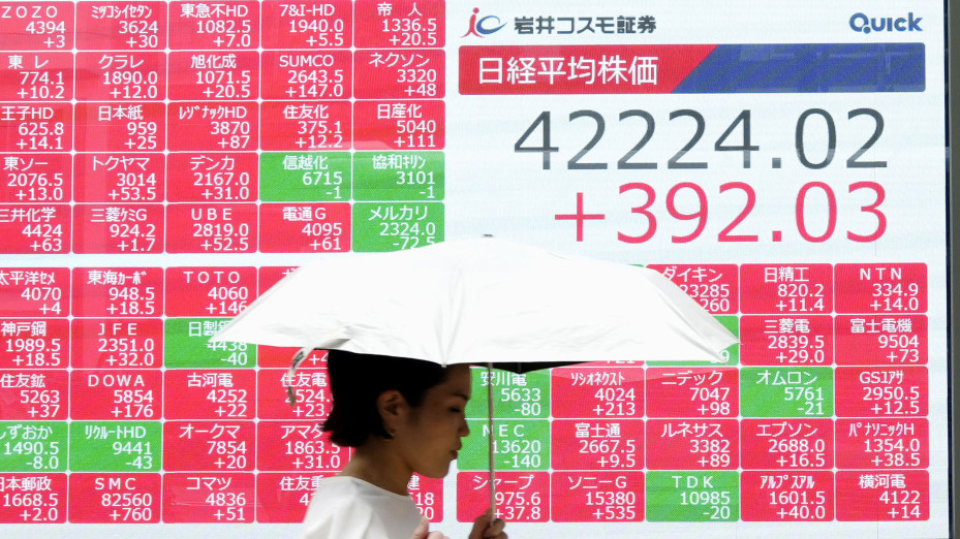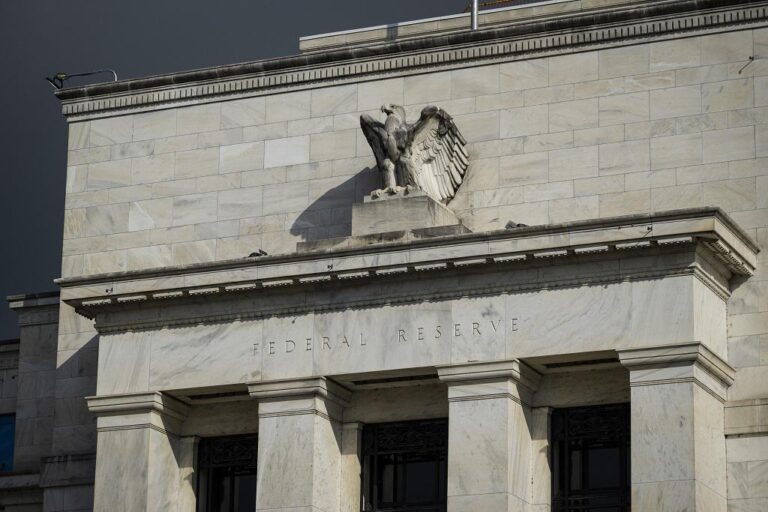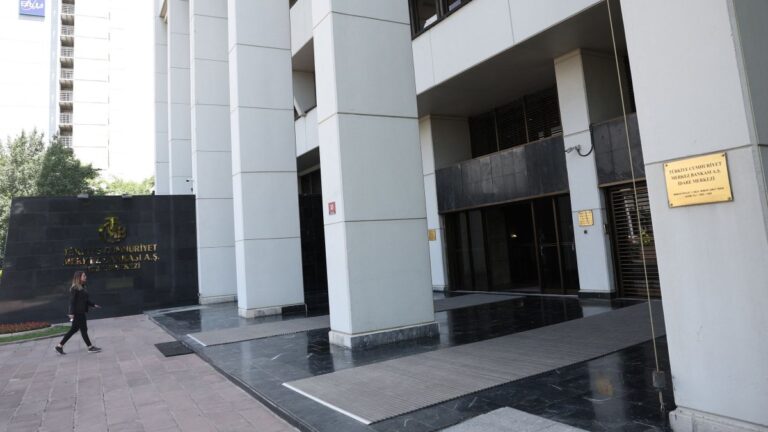
Japan firms set for 5th yr of record profits on AI boom, BOJ shift
Japanese companies are expected to post record profits for the fifth consecutive business year, supported by robust chip demand driven by the artificial intelligence revolution and Japan’s monetary policy normalization.
Solid consumer spending, backed by another round of sharp wage hikes expected in 2025, and government stimulus measures to offset inflation, will likely support sectors sensitive to domestic demand such as retailers and food makers.
Still, analysts say U.S. President-elect Donald Trump’s tariff threats and the possible turnaround of the weakening Japanese currency could crimp profit growth at export-oriented manufacturers such as automakers.
“We expect steady profit growth to continue into fiscal 2025,” Masaki Motomura, senior equity strategist at Nomura Securities, said.
A financial monitor in Tokyo shows the 225-issue Nikkei Stock Average ending at a record high on July 11, 2024. (Kyodo) ==Kyodo
Pretax profits at listed companies in Japan are forecast to grow 6.1 percent in fiscal 2025, following an estimated 7.4 percent rise in the current fiscal 2024, according to Nomura Securities.
SMBC Nikko Securities projects listed companies’ pretax profits will grow 6.5 percent in fiscal 2025 and 7.1 percent by the end of the current fiscal year, while Daiwa Securities expects 6.7 percent growth for listed companies in the new business year and an 8.0 percent increase this fiscal year.
Chip demand will continue to grow led by AI development worldwide. The electric and precision sector, which includes chip-related companies, will be a key driver for overall growth, with an estimated 16.0 percent jump in pretax profit in fiscal 2025, according to Nomura’s forecast.
The sector will also be supported by a recovery in orders from the auto and industrial machinery sectors after a temporary slowdown caused by companies holding excess inventory, Motomura said.
The financial sector is also expected to contribute to higher profits, analysts say. Banks are likely to improve margins in their loan businesses with the Bank of Japan on track to raise interest rates in 2025 after the central bank did so twice in 2024, including its first rate increase in 17 years in March.
Higher interest rates resulting from the BOJ’s normalization of its negative rate policy will also help insurance companies improve investment returns for customers.
Backed by record profits in recent years, Japanese companies are expected to continue to offer substantial wage increases during labor-management negotiations beginning in early 2025.
Japan saw an average wage increase of 5.1 percent in 2024, the largest rise in more than three decades, according to the Japanese Trade Union Confederation, but wage growth still failed to keep pace with inflation.
Real wages rose 1.1 percent from a year earlier in June 2024 to mark the first inflation-adjusted gain in 27 months, but fell back into negative growth as the impact of higher summer bonuses waned.
The government expects Japan’s nominal wage growth to outpace inflation in the year to March 2025 and the following year, with Prime Minister Shigeru Ishiba insisting businesses ensure pay increases exceed inflation.

Photo shows company officials distributing materials to the media during the peak earnings season at the Tokyo Stock Exchange on May 10, 2024. (Kyodo)
But Trump’s proposal for 10 to 20 percent tariffs on all imports into the United States and his plan to levy 25 percent tariffs on products from Canada and Mexico threaten to squeeze exporter profits. The higher tariffs could cause an inflation resurgence for American consumers and dent private consumption.
A strengthening of the Japanese currency would also cut into profits for exporters.
If Trump’s trade policy increases inflation, the Federal Reserve’s predicted interest rate cuts could be jeopardized. That, in conjunction with an increasingly hawkish BOJ looking to raise rates further, is expected to put downward pressure on the dollar in 2025 after soaring close to the 162 yen line in mid-2024, its highest level in over 37 years.
“Trump’s policies create significant uncertainty. Both exchange rates and interest rates are likely to become volatile,” said Masahiro Ichikawa, chief market strategist at Sumitomo Mitsui DS Asset Management.
Kenji Abe, chief strategist at Daiwa Securities, expects every time the Japanese currency strengthens by 1 yen against the dollar, fiscal 2025 pretax profits of Japanese companies are forecast to fall by 0.4 percent.
But Ichikawa said corporate executives should not be excessively concerned about tariffs as he believes Trump is using them as a negotiation tool and not to hurt the global economy.
“Therefore, I don’t believe there is much reason to be overly pessimistic about corporate earnings in fiscal 2025,” Ichikawa said.
Related coverage:
Japan’s real wages fall 0.3% in Nov., down for 4th straight month
Nearly 80% of firms expect continued economic growth in Japan in 2025




